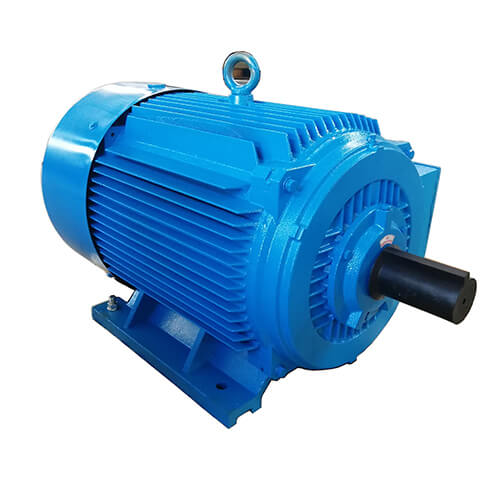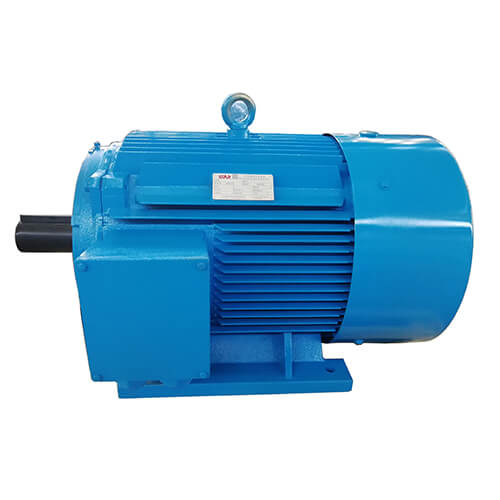Exploring the Efficiency and Advantages of Permanent Magnet Synchronous Motors
Introduction
In the world of electric motors, there are various types that serve different purposes. One remarkable type is the Permanent Magnet Synchronous Motor (PMSM). PMSMs have gained significant attention due to their efficiency, reliability, and precise control capabilities. This article delves into the workings of PMSMs, their advantages, and their applications in today's modern industries.
Understanding Permanent Magnet Synchronous Motors
Permanent Magnet Synchronous Motors are electric motors that utilize permanent magnets in their rotors, as the name suggests. These magnets create a magnetic field that interacts with the stator's magnetic field, resulting in rotational motion. The stator windings generate a rotating magnetic field, while the permanent magnets in the rotor ensure synchronization with the rotating field.

Efficiency and Advantages
PMSMs offer several advantages over other types of electric motors:
High Efficiency: PMSMs are known for their exceptional efficiency levels. The permanent magnets in the rotor eliminate the need for additional energy consumption, such as field excitation. This design reduces energy losses and increases overall efficiency.
Precise Control: PMSMs enable precise control of speed and torque, making them ideal for applications that require accurate motion control. These motors offer excellent dynamic response, allowing for smooth and precise movement in various industrial processes.
Compact Design: Permanent Magnet Synchronous Motors have a compact and lightweight construction. The absence of a field winding reduces the overall size and weight of the motor, making it suitable for applications where space is limited.
Higher Power Density: PMSMs have a higher power density compared to other motor types. This means that they can deliver more power for a given size, making them suitable for applications that require high power output in compact spaces.
Improved Reliability: The absence of brushes and commutators in PMSMs eliminates the need for maintenance associated with these components. Consequently, PMSMs have increased reliability and require minimal upkeep, reducing downtime and associated costs.

Applications of Permanent Magnet Synchronous Motors
The versatility of PMSMs has led to their widespread adoption in various industries. Here are a few notable applications:
Electric Vehicles (EVs): PMSMs are commonly used in electric vehicles due to their high efficiency and precise control. These motors contribute to increased range, improved acceleration, and regenerative braking systems in EVs.
Industrial Automation: PMSMs find extensive use in industrial automation applications, such as robotics, machine tools, and conveyor systems. Their precise control and high torque capabilities enhance productivity and optimize manufacturing processes.
Renewable Energy Generation: PMSMs play a crucial role in renewable energy systems, particularly in wind turbines. These motors efficiently convert wind energy into electrical energy and enable grid integration.
HVAC Systems: Permanent Magnet Synchronous Motors are utilized in heating, ventilation, and air conditioning (HVAC) systems for their energy efficiency and quiet operation.
Conclusion
Permanent Magnet Synchronous Motors have revolutionized the field of electric motors with their high efficiency, precise control, and compact design. Their application spans across diverse industries, contributing to advancements in electric vehicles, industrial automation, renewable energy, and HVAC systems. As technology continues to evolve, PMSMs are expected to play an even more significant role in powering the future.
224
0
0
All Comments (0)
Previous: The Ultimate Guide to DC Small Portable Chillers: Compact Cooling Solutions
Next: Single Facer Corrugation Machine: Revolutionizing the Packaging Industry
If you are interested in sending in a Guest Blogger Submission,welcome to write for us!




Comments